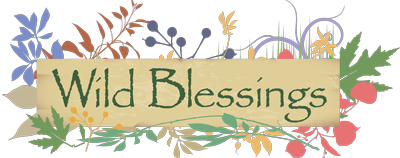The Ten Questions in TCM Diagnosis
Methods of Analysis in Traditional Chinese Medicine




A visit to a traditional Chinese medicine (TCM) acupuncturist, herbalist or alternative medicine practitioner usually begins by answering a long list of questions. Some of the questions may seem irrelevant to patients who come in for treatment of a specific ailment. While patients may wonder why the practitioner needs to know all of this information when it appears to have nothing to do with their complaint, every piece of information is important in differential diagnosis.
Traditional Chinese Medicine is Holistic
Traditional Chinese medicine takes a holistic approach to healing. Rather than diagnosing and treating named diseases as in Western medicine, TCM looks at the person as a whole to determine patterns of disharmony. Information about all aspects of the patient’s condition will allow the practitioner to discover the underlying root of the problem and recommend an appropriate treatment strategy to achieve optimal health. This may include acupuncture, Chinese herbal remedies, lifestyle changes, or a combination of strategies.
The Ten Questions
The Ten Questions have been an integral part of TCM diagnosis for centuries. The first recorded list of ten questions was compiled by Zhang Jie-bing in 1624 during the Ming dynasty. The exact phrasing and number of questions has varied over the years, but the following are general questions that a patient may expect to be asked on a visit to a TCM practitioner, and examples of what type of information he or she is looking for.
- Cold and Heat, Chills and Fever- whether the patient always feels cold, has cold hands and feet, cannot tolerate cold, or whether he or she generally feels too warm. In an acute illness, the severity of chills and fever, and whether the fever fluctuates with time of day.
- Perspiration- night sweats or spontaneous perspiration without physical activity, a high fever with no perspiration, or sweating of palms and soles of the feet.
- Pains in Head and Body- the location of pain, such as lower back, knees, chest, front, sides or back of the head; if there is an uncomfortable feeling of fullness in the chest or abdomen; the type of pain (sharp and piercing or dull and aching); and whether the pain is relieved or worsened by application of cold, heat or pressure. Dizziness would also fall under this category.
- Urination and Bowel Movements- frequency of urination and bowel movements (times per day), constipation, diarrhea, frequent copious clear urination, scanty dark urination, incontinence, or needing to get up one or more times during the night to urinate.
- Diet and Appetite- lack of appetite, constant insatiable hunger, bloating after eating, desire for hot or cold foods, craving certain tastes such as sweet, sour, salty or spicy, habitual intake of sugar, caffeine or alcohol. This category also includes experiencing a particular taste in the mouth such as metallic or bitter.
- Thirst- excessive thirst, lack of thirst, thirst with no desire to drink, or constant desire for cold drinks.
- Mental or Emotional State- TCM recognizes that the emotional and physical are interrelated, and emotional states such as grief, anger, worry or fear can affect the patient’s physical well-being. Conversely, physical disharmonies can bring about emotional responses.
- Hearing- tinnitus (ringing or other sounds in the ears), sudden or gradual hearing loss
- Sleep- excessive desire to sleep, difficulty falling asleep, or waking in the middle of the night and being unable to fall back asleep. Nightmares or dream-disturbed sleep are also included in this category.
- Gynecological Issues- women would be asked whether the menses are early or late, irregular, if the flow is light or heavy, if the color is light or dark, and if they experience pain or cramps during menstruation.
In addition to asking these or similar questions, the TCM practitioner will want to know about the patient’s medical history and previous diseases or ailments, and will employ observation of the patient’s overall demeanor, speaking voice, energy level, coloration, eyes, and other physical characteristics, as well as pulse and tongue diagnosis, in order to make an accurate diagnosis and choose the most effective treatment.
